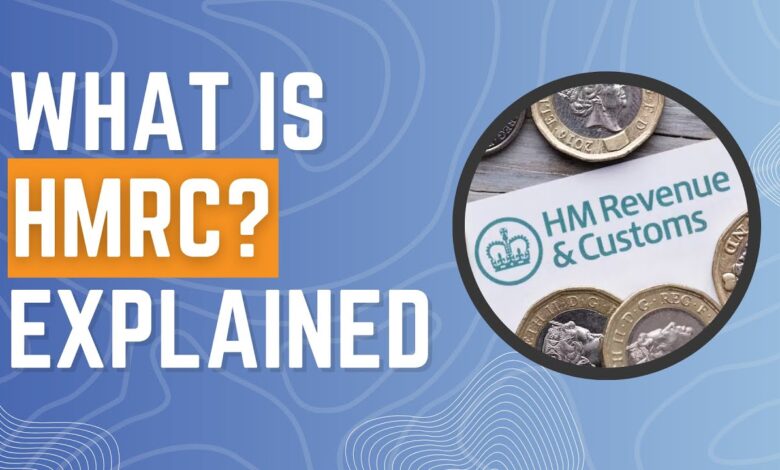What is HMRC?

HMRC: Everything You Need to Know
When you live, work, or run a business in the UK, you will often come across the term HMRC. But what exactly does it mean, and why is it so important? This guide will explain the role of HMRC, how it affects individuals and businesses, and why staying compliant is crucial.
What is HMRC?
HMRC stands for Her Majesty’s Revenue and Customs. It is the UK government department responsible for collecting taxes, administering certain benefits, and enforcing regulations such as the national minimum wage and customs duties.
It was formed in 2005 through the merger of the Inland Revenue and HM Customs and Excise. Since then, HMRC has played a central role in funding public services like healthcare, education, and infrastructure.
What Does HMRC Do?
The responsibilities of HMRC cover a wide range of areas. Some of the key functions include:
- Tax Collection: Income tax, corporation tax, VAT, and capital gains tax all fall under HMRC’s authority.
- National Insurance: HMRC manages contributions that fund pensions, unemployment benefits, and healthcare.
- Customs and Duties: When goods are imported or exported, HMRC ensures the correct tariffs and duties are paid.
- Benefits and Credits: HMRC administers schemes like Child Benefit, Tax Credits, and the newer Universal Credit (in part).
- Regulation: HMRC also enforces rules on minimum wage, money laundering, and anti-tax evasion.
Why is HMRC Important for Individuals?
For individuals, HMRC plays a direct role in financial life. Whether you are an employee, self-employed, or retired, HMRC determines how much tax and National Insurance you owe.
- Employees usually have tax deducted automatically through the PAYE (Pay As You Earn) system.
- Self-employed individuals must file a Self Assessment tax return each year.
- Investors and landlords report income from property or shares to HMRC.
Keeping accurate records and submitting information on time helps avoid penalties.
Why is HMRC Important for Businesses?
For businesses, dealing with HMRC is a regular responsibility. Companies must:
- Register for taxes like VAT and corporation tax.
- Report earnings, expenses, and payroll information.
- Ensure they follow regulations on employee wages and pensions.
Failure to comply with HMRC rules can lead to investigations, fines, or even legal action.
How to Interact with HMRC
There are several ways individuals and businesses can interact with HMRC:
- Online Services: HMRC provides an online portal for tax returns, payments, and correspondence.
- Phone Support: Dedicated helplines are available for tax, benefits, and customs queries.
- Government Gateway: This secure login system allows access to multiple HMRC services.
Tips for Staying Compliant with HMRC
- Keep Good Records – Maintain receipts, invoices, and financial documents.
- Meet Deadlines – Submit returns and payments on time.
- Seek Professional Advice – Accountants or tax advisers can help navigate complex HMRC rules.
- Use Digital Tools – HMRC’s Making Tax Digital scheme encourages the use of online accounting software.
Conclusion
In simple terms, HMRC is the backbone of the UK’s tax and revenue system. It ensures money is collected fairly, benefits are distributed, and regulations are enforced. Whether you are an individual taxpayer or a business owner, understanding how HMRC works will help you stay compliant and avoid unnecessary issues.
FAQ about HMRC
1. What does HMRC stand for?
Her Majesty’s Revenue and Customs.
2. How do I contact HMRC?
You can contact them via their website, phone helplines, or through your Government Gateway account.
3. Do self-employed people deal directly with HMRC?
Yes, they must file Self Assessment tax returns and manage National Insurance contributions.
4. What happens if I don’t pay HMRC on time?
Late payments can lead to penalties, interest charges, and enforcement action.
5. Does HMRC only deal with taxes?
No, HMRC also manages benefits, customs, and regulatory enforcement.




